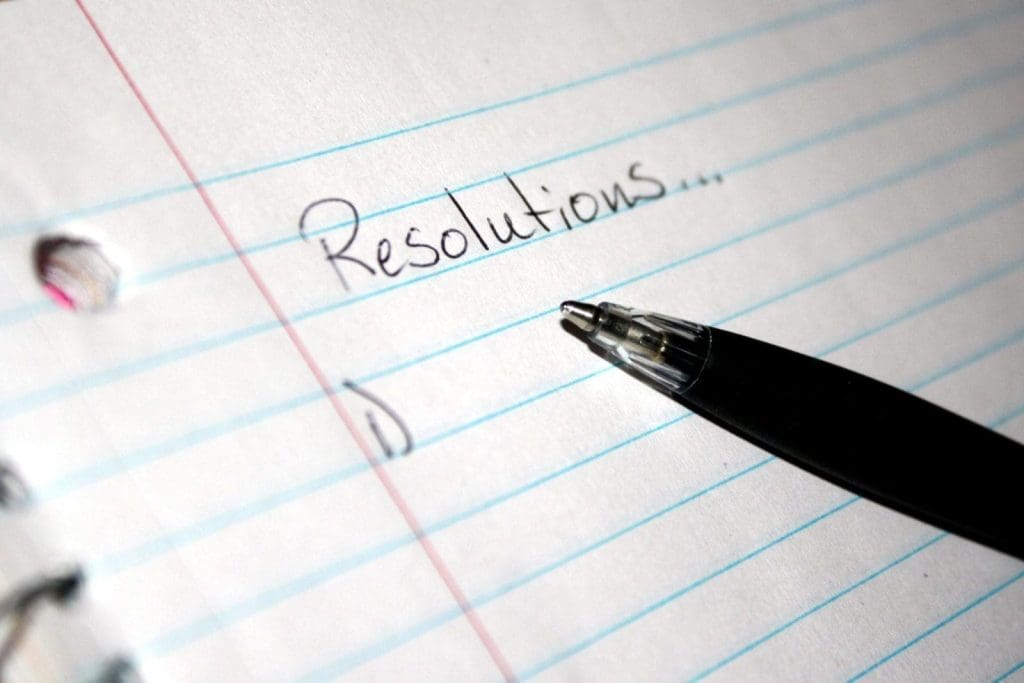With the New Year approaching and the bad habits of the past year catching up to us, New Year’s resolutions are bound to be made, but how many will actually be kept? Statistics show that up to 50 percent of the population makes some sort of resolution, but the success rate of these resolutions is as low as 8 percent. So what are we doing wrong?
While resolutions are good in that they are endeavors for positive change, they can also be just another form of procrastination. We should always work to improve our lives, but these New Year’s resolutions just put it off until the next year. There may be those who achieve a resolution each year to make new ones but something tells me that there are people out there that have been saying they will lose weight for the past few years. We’re all guilty of procrastination, so there is no need to feel bad. Most people fail to succeed because they go about it all wrong. Here is some advice that may help you better achieve your New Year’s resolution this year:
~Avoiding negative behavior doesn’t change behavior. Behavioral change is about actively participating in new behavior and new thinking. Bad habits are maintained by particular thinking patterns, so you have to change your thinking just as much as your behavior. Let’s use weight loss as an example since it is a common resolution. It is difficult to do, but there are obvious solutions like eating healthier and exercising. Unfortunately, the way to approach weight loss and other resolutions is not obvious. Many may try to reach their goals by avoiding junk food. Withholding only creates cravings and makes the experience of change unpleasant. A better approach would be to eat more fruits and vegetables, naturally edging junk food from one’s diet. You are partaking in new behavior which is easier than avoiding habitual behavior.
~Make resolutions that are within your control. Falling in love is not a proper resolution because there is no guarantee that you will fall in love. That is more or less random. Be practical.
~It’s good to set goals, but don’t drive yourself crazy with personal deadlines. Make sure goals are realistic and low pressure. Resolutions are about improving yourself, so you don’t want improvement to be unpleasant. To use weight loss again, maybe a better idea than setting weight loss goals is creating a workout schedule, like going to the gym every other day. You are participating in new, healthy behavior, without putting pressure on yourself to lose a certain amount of weight. High pressure deadlines in weight loss can lead to unhealthy behavior, when the point is in fact to maintain healthy behavior that creates weight loss. Weight should just be a measure of progress.
~Don’t get discouraged. That’s another problem with demanding personal deadlines. If you fail to lose a certain amount of weight or cave in and smoke that forbidden cigarette, you will be less likely to continue with the resolution for much longer and it gets put off for the next year. If you refrained for smoking for three months and caved in one stressful night, that doesn’t mean you have to reset the clock. The thought of starting over is the most discouraging thing ever. Instead, realize that this is one cigarette in three months, which is a pretty great achievement if you were a habitual smoker. Think about the money saved and how you haven’t needed one for three months, so you probably won’t need one for the next three.
~Don’t think long term. That’s stressful. What are you doing in the present moment to achieve your resolution? If you are eating healthy or not smoking or saving money now then you are achieving your resolution.
Sources:
http://www.psychologytoday.com/blog/wired-success/201312/why-we-dont-keep-our-new-years-resolutions
http://www.statisticbrain.com/new-years-resolution-statistics/
Writer/Blogger at The Digest. Lifelong New Jersey resident. Actually likes this place.
- Sebastian Krawiechttps://thedigestonline.com/author/sebastian/
- Sebastian Krawiechttps://thedigestonline.com/author/sebastian/
- Sebastian Krawiechttps://thedigestonline.com/author/sebastian/
- Sebastian Krawiechttps://thedigestonline.com/author/sebastian/


